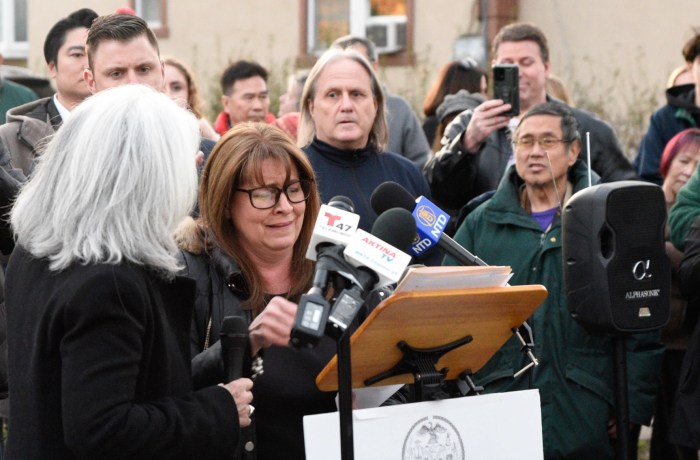
A pair of New York lawmakers introduced legislation Thursday to make video footage from police body cameras eligible to be released to the public.
The bill, introduced by state Senator Daniel Squadron and Assemblyman Dan Quart, would make the footage eligible to be requested under the state’s Freedom of Information Law. The bill would prevent someone’s video footage from being considered their personnel records.
“This strikes me, in an issue that obviously is very heated, as a no brainer,” said Squadron (D-Manhattan), speaking at a news conference. “The idea of body cameras is to increase people’s confidence, to identify those who are acting in way they shouldn’t act and to do something about it. That should be consensus and I would hope it is.”
There are exceptions: the people on the video would be unrecognizable, their facial features and voices would be redacted, and a police department could deny releasing the video if, for example, it interfered with pending criminal litigation. It may also not be possible to request the footage based on a person’s name.
“What’s clear is there is going to be an expansion of body cameras and dashboard cameras in the city of New York, and likely other jurisdictions that can afford to increase their purchase,” said Quart (D-Manhattan). “It makes sense to try and set forth protocols and policies in place that deals with transparency for the public before the complete implementation and further implementation. This bill is very prospective, as we see it.”
Under the bill, a video’s metadata would also be released, including the time and place the video was recorded. The bill would not interfere with someone’s rights to receive a video of their own interaction with a police officer.
“It’s a great deal more information than you have otherwise and technologically feasible because we are talking about tens or hundreds of hours of video,” Squadron said.

















